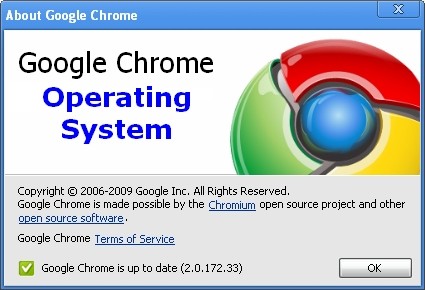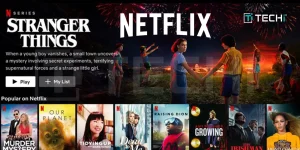We all recall Steve Ballmer’s famed ‘Monkeyboy’ chant as he ran round a stage yelling, “Developers, developers, developers,” and despite leaving himself open for a lifetime of ridicule with the move, he was right.
A platform is nothing without a strong developer community. And that’s why Google’s Chrome OS will let you run your old Windows and Mac desktop apps from your shiny new Chrome laptop, at least, that’s what people are saying…
These rumors began with The Register. That august journal first told us about a process called Chromoting, citing an email from Google software engineer Gary Kacmarcík.
In a posting on a third party Chrome OS-dedicated mailing list, the engineer promised that the new capability means “Chrome OS will not only be [a] great platform for running modern web apps, but will also enable you to access legacy PC applications right within the browser.”
The engineer described Chromoting as working a little like Remote Desktop Connection, a Microsoft solution which lets you access and use PCs remotely via the internet. He didn’t confirm any Mac support, but it is no great stretch to imagine Google may take such a step.
Why this makes absolute sense, of course, is that when the Chrome OS does eventually ship, even a company as big as Google won’t be able to deliver every application users need, nor will it be able to guarantee those applications it does provide will fully service user needs.
Google will also need time to build a developer community, though we can expect next year’s Google I/O event to be an even bigger party than it was this year.
So what’s a search engine giant gonna do when trying to get into an all-new market and blow apart the existing OS trifecta (Mac, Windows, Linux)?
Why, invent a way to run applications built on other operating systems, of course! After all, applications like LogMeIn and GoToMyPC have offered this sort of thing for years.
Chrome OS is essentially Google’s Chrome web browser running on top of a version of Linux. Applications are accessed from within the browser. The OS is expected to appear at the end of 2010, making its debut on netbooks.
What is interesting is the Google engineer’s use of the phrase “legacy PC applications” — especially in light of Apple CEO Steve Jobs recent comments that,
“The times they are a changing, and some traditional PC folks feel like their world is slipping away. It is.”
A move from traditional desktop computing toward a truly mobile solution makes a lot of sense — after all, this is what we’re seeing in the iPhone (now iOS) ecosystem…
Could Google’s new Chrome feature be part of this prevailing change?
Via: The Register





23 User Comments
atomic1fire
The OS itself will probably be free,
Why would google, knowingly distribute a Browser, On a OS, that both have the source code legally available, for price, when someone could just repackage it, under a completely compatible new name.
answer?
They wouldn’t, its an opensource project, and most google projects are free anyways.
Google isn’t doing this for marketshare, they are doing it for advertising,
The Google Webstore is simply a ploy to get people on board.
See, Google designs a browser with the intent of boosting web standards.
They then repackage it as an IE plugin.
Release a full system with it, and release android, which will probably be compatible, beforehand, for mobile phones.
So where does android, webstore, chrome, chrome frame, and chrome os lead us.
Google’s internet.
By planning out every ounce of an incentive to design for a google friendly setup, (remember, they can use keywords on webpages, video ads via flash and (eventually) html5, and probably ingame branding at some point, using webgl, via html+javascript, they have the potential for a widespread nonclosed marketplace, with even more room for ads.
All they got to do is get the hardware makers on board,
By releasing Chrome OS for free, they don’t have to pay for it.
and by getting providers on board with Chrome friendly webapps, that can be carried out to browsers as well, such as safari for ipad, they can easily release two marketplaces at once.
NotRob
@Rob,
Where are you seeing that it is going to cost money? I guarantee Chrome will not cost money, netbooks do because they are hardware. You have to pay for a machine that can run it, you can run it right now on your current machine if you point your free Google web browser (Chrome/Open Source) at Google.com (which also is free :P) and search for it, then you can download an image (Free again). You can boot it off of USB or VMWare Player/Fusion (Not free). Or you can read more about it if you have a phone that is running Android (Open source). Good luck!
lu
I’m pretty sure chrome is going to be free too
matt
rob, google is basing their os around open source software. im quite sure they will release it for free as they did for android.
Rob
“Chrome OS is essentially Google’s Chrome web browser running on top of a version of Linux. Applications are accessed from within the browser. The OS is expected to appear at the end of 2010, making its debut on netbooks.”
That doesn’t ring a good bell. Linux is free, I don’t want to pay money for what will essentially be the exact same thing with a new logo on it.
Karai
No one said you had to pay for ChromeOS…
King_D
I think Google OS “IS” gonna be free.
(Same as all other gadgets from Google are)
polyp2000
Yes linux is free as in GPL, as is chromeOS which you are welcome to download for free and get involved with.
get your facts straight…
N.
Ruggy
@Rob
Google Chrome OS is an open source project and will be available to use at no cost.